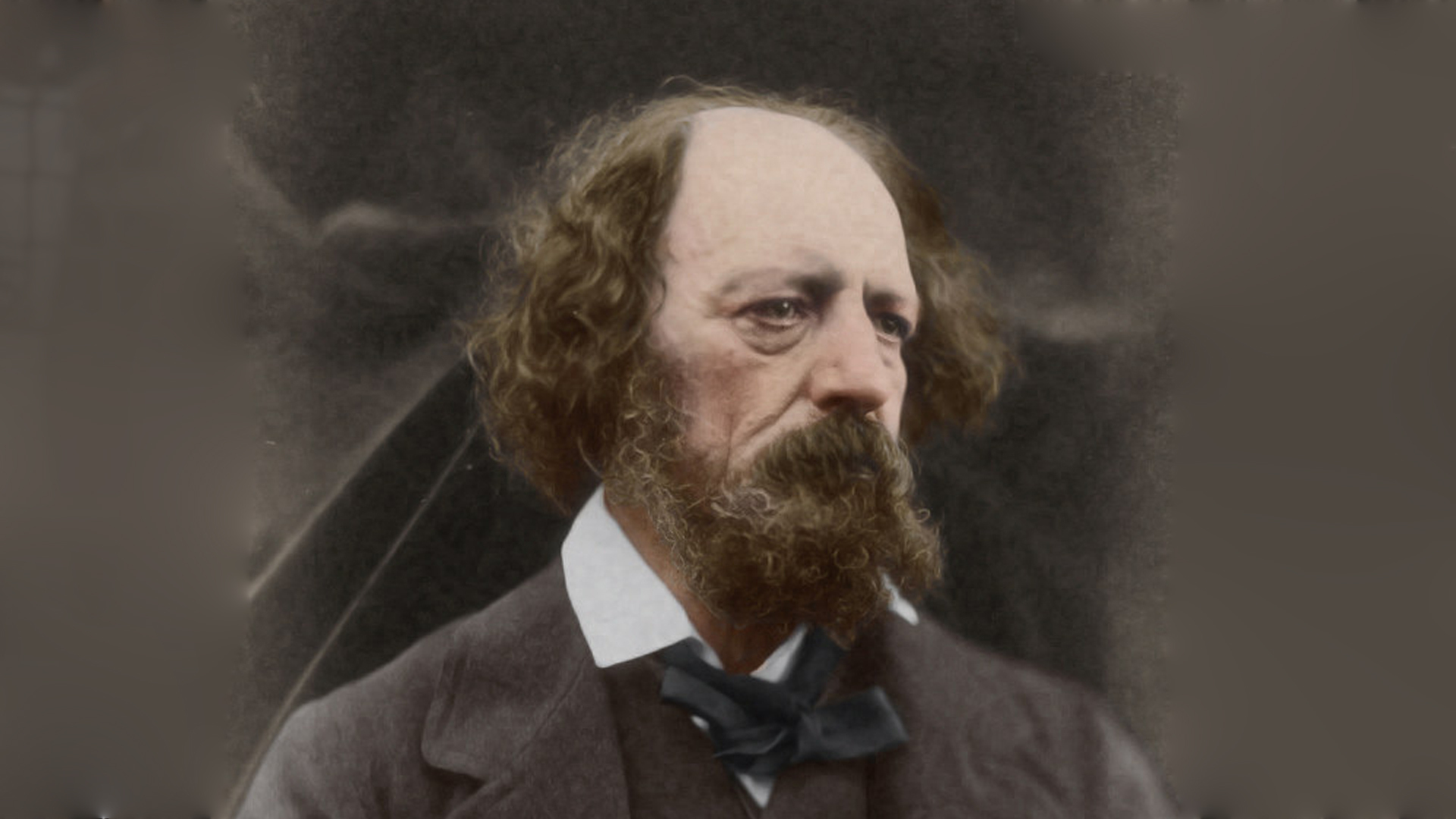The Brook Poem by Alfred Lord Tennyson
The Brook
I come from haunts of coot and hern,
I make a sudden sally
And sparkle out among the fern,
To bicker down a valley.
By thirty hills I hurry down,
Or slip between the ridges,
By twenty thorpes, a little town,
And half a hundred bridges.
Till last by Philip's farm I flow
To join the brimming river,
For men may come and men may go,
But I go on for ever.
I chatter over stony ways,
In little sharps and trebles,
I bubble into eddying bays,
I babble on the pebbles.
With many a curve my banks I fret
By many a field and fallow,
And many a fairy foreland set
With willow-weed and mallow.
I chatter, chatter, as I flow
To join the brimming river,
For men may come and men may go,
But I go on for ever.
I wind about, and in and out,
With here a blossom sailing,
And here and there a lusty trout,
And here and there a grayling,
And here and there a foamy flake
Upon me, as I travel
With many a silvery waterbreak
Above the golden gravel,
And draw them all along, and flow
To join the brimming river
For men may come and men may go,
But I go on for ever.
I steal by lawns and grassy plots,
I slide by hazel covers;
I move the sweet forget-me-nots
That grow for happy lovers.
I slip, I slide, I gloom, I glance,
Among my skimming swallows;
I make the netted sunbeam dance
Against my sandy shallows.
I murmur under moon and stars
In brambly wildernesses;
I linger by my shingly bars;
I loiter round my cresses;
And out again I curve and flow
To join the brimming river,
For men may come and men may go,
But I go on for ever.
My father had memorized this poem in grade school backmin the 1930's. One of my lasting memories of him was him reciting this beautiful poem to me when I was a child. I read this poem aloud in honouring his memory at his funeral at sea while we committed his ashes to the deep.
simple, yet enchanting, absolutely delightful, the poem is one of the few i read in school. everytime i read i am transported to himalayas, where i saw these kinds of brroks, Tennyson describes with such gay abandon. Mamta
this poem is my most favourite poem, and the poet is also good 2
Loved bubble, babble and pebbles reflected in this great poem.
lovely - that should explain it all - why a lengthy comment of 20 words -
I am fortunate to have read this lovely poem and was inspired to do its Hindi translation which I will post in a shot while. This is my tribute to the immortal poet Lord Tennyson.
One of the first poems I ever learned. Still makes my heart leap up!

This poem (clearly a transcendentalist homage to scriptural reference [Ecclesiastes 1: 4]) really is alive because rather than the static (earth) , it refers to the dynamic (water) - the brook yet endures - but in contrast, One never steps in the same river twice... (Heraclitus) . It is the dynamic flow, the journey of the brook, and the merging into everything it encounters, that appeals. Indeed the human being is the brook, for what else babbles and chatters at every turn, bickers and visits so many towns, to murmur and croon to the moon (wether or not anyone is listening) . Humanity is not a part of nature, we are nature - if absolutely true to it. Often people describe human nature as aberrant (war, sin, vice, etc...) - which is propaganda of the oppressor. I very strongly believe that Tennyson and I could be in agreement that nature IS true humanity - propaganda of the partner. The natural inclination of humanity to the Transcendentalists is reverence to nature in a divine sense. Our essence is goodness and self-reliance. Nature is not subordinate to us, but instead nature exists in symbiotic relationship. Likewise, nature transcends itself - for it is not one thing that creates beauty - but rather the relationship between things; nature is never static, and the more one finds it's place in it: the more beautiful it becomes. Every natural environment is whole, complete, and everything in it is doing exactly as it should. Beauty only exists if there is a viewer, it is never solitary. Likewise, reverence is always a partnership. The more that we surrender to our natural relationship with nature, the more true we become, to ourselves and the world - and, the more likely we are to endure forever. For certainly, the more separate we make ourselves from nature - the more we destroy it. Why destroy ourselves? Why kill our planet? Why be indifferent to the other creatures?